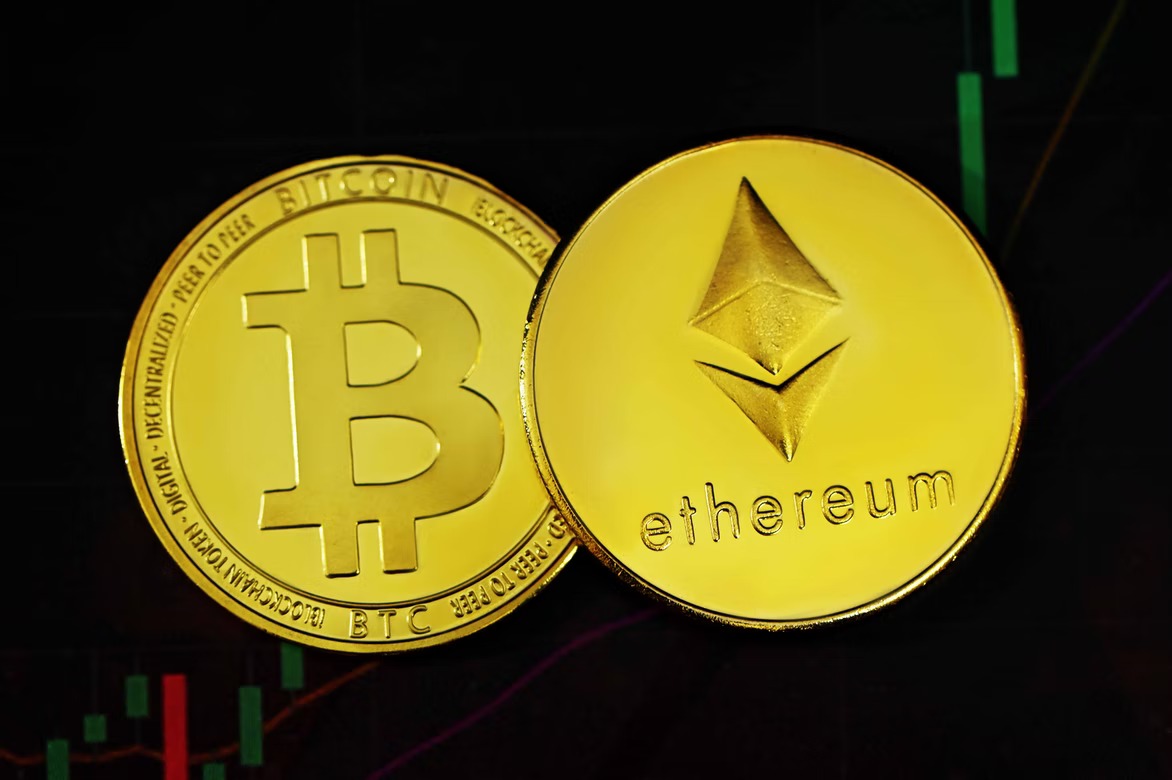Ethereum vs. Bitcoin: Which One Is a Better Investment?

Ethereum and Bitcoin are among the top two cryptocurrencies in the market. The Ethereum vs. Bitcoin debate has been raging for some years now. Google searches for "Ethereum merge" just hit an all-time high. Some expert crypto analysts believe that Ethereum may overtake Bitcoin in the coming years, as it continues to grow and be accepted worldwide. According to Yahoo Finance, Ethereum could eventually pass Bitcoin in market cap because its smart contracts are a more versatile alternative to Bitcoin.

Ethereum is a decentralized platform upon which different applications can be built, enabled, and supported by the collective value and effort of the people who use it. These applications are not only limited to managing financial transactions alone but also contract negotiation and other forms of agreement.
With a focus on decentralization and security, Ethereum blockchain produces blocks within a given period that fix the computational power needed to mine automatically. However, many people consider these features as bugs to be fixed in future updates because these features make mining less profitable.
However, there are now new ASIC mining hardware setups that are specially designed to mine Cryptocurrency. Miners can use these computers to mine any cryptocurrency that operates through proof of work.
ASIC miners can generate or mine more ether as compared to the GPU miners, however that efficiency comes along with a high cost as these computers are relatively expensive than GPU mining. If you want to know more about the best GPU for mining, ASIC, and other high performance mining hardware then you can visit Hushi.
There are several key distinctions between mining Ethereum and mining Bitcoin. While they were both designed with different purposes in mind, the former is not a direct derivative of the latter. This article explores the reasons for their differing natures, highlighting some crucial differences between Ethereum vs. Bitcoin.
Bitcoin Basics
Bitcoin is a peer-to-peer, decentralized payment network that is powered by its users with no central authority. It was released in 2009 by an individual or a group named "Satoshi Nakamoto."
Bitcoin, the most popular cryptocurrency of all time, allows people to do secure transactions so that no one will be able to uncover the identity of a person sending or receiving Bitcoin. Payments are made using cryptography; hence all transactions are secured on the blockchain, and the network nodes can verify their legitimacy.
Although bitcoin wasn't the first try at an online currency of this sort, it was the most successful in its early years, and it has become something of a precursor to virtually all other cryptocurrencies that have been developed over the past decade. Many people believe Bitcoin to be a better alternative to conventional electronic transactions.
Ethereum Basics
Ethereum is a blockchain technology that was created in 2015 by Vitalik Buterin. Ethereum is a cryptocurrency that provides ether tokens. This is similar to bitcoins in the Bitcoin network. However, the functionality of Ether is more than just enabling digital currency. Ether is the most established, open-ended decentralized software platform.
Ether is being used to build and deploy decentralized applications whose back-end code runs on a computer network consisting of a collection of machines rather than a centralized server. According to Dragonfly Research, Ethereum is the 'MS-DOS' of blockchains.
Ether tokens are used to pay for services like computational power needed before new blocks can be added to the blockchain or transaction fees paid via smart contracts.
This platform has its own programming language that runs on blockchain and allows developers to create and run distributed apps. The two most common purposes of Ethereum are cryptocurrency trading and running decentralized applications on the Ethereum network.
What are Smart Contracts?
Smart contracts are simply pieces of code that have been written on the blockchain. When certain conditions have been met, they will initiate automatically and proceed to do what they were programmed. They can be used as a part of an agreement and provide real-time security to all parties involved in an exchange.
Bitcoin vs. Ethereum
BTC and ETH both have one thing in common - they are both digital currencies - but that's where the similarities end. Ether is not meant to replace bitcoin as much as it was created to allow for the more efficient and decentralized running of smart contracts and dApps on their platform, which aims to facilitate distributed applications.
More importantly, both digital currencies are greatly different with respect to their overall aims. Bitcoin is better known for being a form of currency created purely for monetary use and lacks any potential use cases other than that.
That is not the case for Ether—it has been primarily used as "gas" for Ethereum's platform, and its value was gained as more developers began creating applications that run on top of Ethereum's blockchain. However, the overgrowing popularity of Ethereum has pushed it ahead in the competition to all other cryptocurrencies, and it has gained significance from a trading perspective. Now, Ethereum is very close to Bitcoin in terms of rankings and total market cap.
Mining
When it comes to Ethereum vs. Bitcoin mining, there are some crucial differences between them. The reason is the same: both digital currencies don't share a common purpose at first.
The Bitcoin miners validate the crypto transactions by solving a complicated math puzzle to add a new block to the blockchain. First, this process is called "Proof of work." Ethereum miners do the same but work on a different transaction form, and their process of validation is called "Proof of stake."
In Ethereum mining, an individual can mine or validate transactions based on the number of Ether he/she owns. That means the best Ethereum miner with more coins holds more mining power in Ethereum mining.
Fees
The transaction fee for Bitcoin is optional. You can choose to pay more money to get it prioritized by the miners and make sure your transaction gets through faster. Otherwise, it will go through anyway.
On the other hand, though, when you create an Ethereum transaction, you must specify how much Ether you're willing to spend in order to have the computation take place that adds your transaction onto the blockchain – which is necessary to send transactions on Ethereum. It's called "gas," and what it drives is known as a "transaction."
In simple words, Ethereum-based transactions tend to be far faster than Bitcoin transactions, while there's a steep cost that comes with that convenience which one must provide in Ether for a successful translation. Many people consider it a drawback of Ether when it comes to Bitcoin vs. Ethereum fees.
Time
In a blockchain, the block time is used to determine how quickly everyone in the network sees new transactions or how much time it takes to mine a block. The block time of Bitcoin is 10 minutes. On the other hand, Ethereum can verify transactions in 10 seconds.
Hashing Algorithms
Hashing algorithms are part of what makes blockchain technology difficult to hack and ensure its security. Cryptographic hash functions maintain their privacy and ensure the security of the systems. Bitcoins use a hashing algorithm called SHA-256, whereas Ethereum uses the Ethash hashing algorithm.
How many BTC and ETH are currently in circulation?
Bitcoin and Ethereum's monetary supply isn't even comparable. There are approximately 18.99 million bitcoins currently in existence, whereas Ethereum has approximately 120 million ether tokens circulating around.
Although the number of ethers in market circulation amounts to more than 120 million, its current market capitalization is still lower than Bitcoin's, which is valued at $844 billion as opposed to Ethereum's $375 billion valuations.
Bitcoin vs. Ethereum Daily Transactions
There are roughly 262,000 daily Bitcoin transactions taking place every day, whereas Ethereum processes roughly a 1.1million transactions every day.
Final Verdict: Bitcoin vs. Ethereum
Which is better, Bitcoin or Ethereum? There is no clear winner. The truth is that it depends entirely on your requirements. When choosing between both cryptocurrencies, it's important to consider what you hope to accomplish with either currency. If you're looking for a decentralized peer-to-peer transactions system, you may be better suited to opt for Bitcoin. Ethereum, on the other hand, seems like a stronger choice if you wish to create and build applications and smart contracts with a cryptocurrency platform.
This article was provided by Hushi, a global leader in manufacturing computer hardware for mining Bitcoin, Ethereum, and other digital currencies. They've focused on creating a number of core competencies related to mining digital currency products to become an innovator in the fields of ASIC designs and chip manufacturing.
